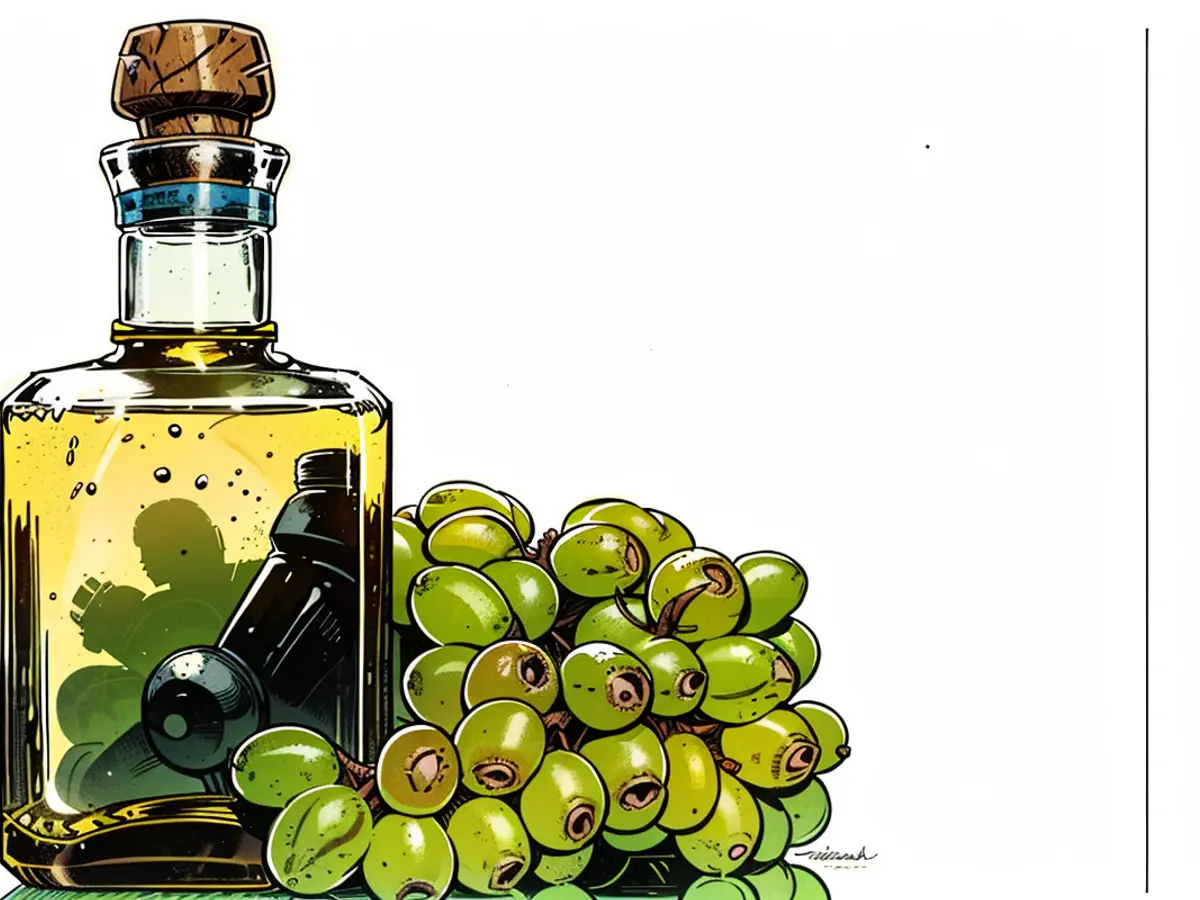Pricing premium quality white balsamic vinegar carries a substantial cost.
Italian vinegar is available in both light and dark varieties. The lighter type, often referred to as Advised Balsamic Vinegar Bianco or simply white balsamic vinegar, is the focus of Öko-Test's scrutiny. They examined 25 different samples, ranging in price from 1.69 to 27.98 euros for a 500 milliliter bottle.
Vinegar production is a straightforward process, involving the aging of concentrated grape juice with wine vinegar, but the choice of grapes, thickening method, aging duration, and storage conditions are significant factors influencing the final taste. A larger quantity of grape juice and a more concentrated product generally result in a richer, more diverse flavor.
A well-prepared white balsamic vinegar boasts a fruity flavor with less acidity than ordinary white wine vinegar, making it an excellent addition to light salad dressings or sauces, serving as a replacement for dark Aceto Balsamico.
Average tastiness comes at a lower price
Admirers of superior flavor should prepare to pay a premium. Alternatively, buyers who are satisfied with a "very good" rating can consider "Hengstenberg Condimento Balsamico Bianco" (3.89 euros per 500 milliliters) or "Tegut Condimento Bianco" (2.79 euros), despite the top ratings, failed to impress the tasters due to their lack of body, depth, and flavor variety.
More expensive favorites, such as "Giuseppe Cremonini Condimento Bianco" (27.98 euros) and the Demeter-certified organic balsamic vinegar from "Campo Verde Condimento Bianco" (12.98 euros), scored better. However, the test report is unclear about the reasons for their "good" rating, as traces of pesticides and other imperfections were still found.
Lower quality ingredients or compositional inconsistencies led to a "unsatisfactory" rating for "Cucina Nobile Condimento Bianco" from Aldi and "Ponti Dolceagro Condimento Bianco".
Inconsistent labeling
Regrettably, Öko-Test discovered that the ingredient list of several products was not consistent. The reported low content of organic acids and minerals was not supported by the high sugar content. This discrepancy is likely due to the use of rectified grape must concentrate (RTK) instead of the actual concentrated grape must mentioned in the ingredient list. RTK is essentially flavor-neutral sugar derived from grape must.
Manufacturers claim that using RTK is a common practice and fulfills consumer expectations for a lighter, clearer product. However, only five manufacturers openly disclose using RTK in their Condimenti.
When researching lighter balsamic vinegar options, it's important to note that some manufacturers may use rectified grape must concentrate (RTK) instead of actual concentrated grape must, which could affect the product's taste and nutritional content. In the scrutiny of white balsamic vinegar, advising consumers to check the ingredient lists for transparency is crucial.
Although several brands tout their use of RTK, only a few manufacturers are transparent about it in their labeling. Consumers should be vigilant and advising them to seek out brands that are transparent about their ingredients can help ensure they're getting the best possible product.







